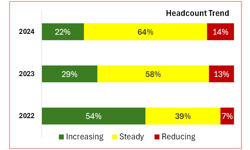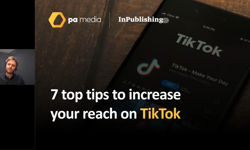
Over the last few weeks, we have been polling “media insiders” about your favourite Films & TV Shows and Books which are about the media business – we received just under 300 votes.
After this bit of fun – quite revealing though it has been – we come to the most intriguing question of all…… who do you think are the most influential people in media at the moment?
Two very different people are way ahead of anyone else – Mark Zuckerberg and Rupert Murdoch – with Zuckerberg just stealing it by a couple of votes. And then there’s Jeff Bezos…
Mark Zuckerberg: “clueless and conscience-free”?
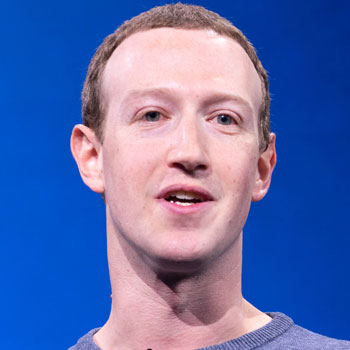
The whole media industry has been very nervous for a long time about the social platforms in general and about Facebook in particular (“They control the destinies of all media companies by increasingly owning the platforms for content”).
Yet what comes through the mediaONmedia poll very strongly is not so much the corporate ambitions of Facebook, but the pivotal role of Mark Zuckerberg as an individual.
This quote from one media insider captures it all….
“I suspect that one of the most powerful men who has ever lived really is as clueless and conscience-free as his public appearances suggest.”
And here are a few more choice titbits: “He is the biggest and baddest publisher on the block”… “He has the power to shift events - local, national and international - without realising it.”… “He has a massive and totally unregulated influence on the young.”… “His vehicle is the biggest distorting influence on responsible journalism and there seems to be no appetite to take it on.”… “Reach is power and influence in media and his reach is an awesome 2+ billion people.”
Someone of the same ilk, but who had far fewer votes was Tim Cook of Apple… “Mark Zuckerberg is high profile, but Cook clearly has a huge influence on what Apple does and he seems to be more respected by the media generally. Apple is one of the most important companies in the world and Cook seems to know exactly what is going on at every level.”
Rupert Murdoch: Saint or Satan?
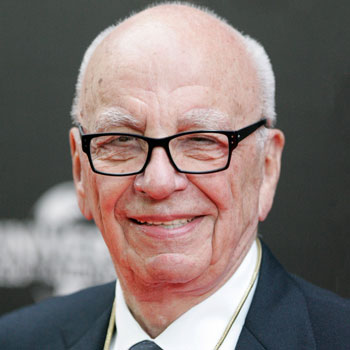
Murdoch is a real Marmite character, whose profile has been raised once again by TV shows such as “Succession”. The Saint or Satan dilemma is captured in this quote… “With age, a waning force perhaps, but still hugely influential. His influence is both positive and negative. He invests in his products, knows that journalism has to be paid for and is a fierce defender of the sector against outside, big tech interests – who else has really taken on Facebook? However, his interference in the editorial side of his titles is often malign and his Fox News channel is positively toxic.”
Another interesting angle on the man is the fact that the mediaONmedia poll picks up a number of people who have worked for Murdoch, a couple quite closely… “He understands journalists and writers. He knows what makes a good newspaper or magazine or movie. He is also willing to hear your side of why you did what. His papers and TV have changed our world.”
Yet the weight of media insider opinion is negative… “Murdoch has built a media empire across the globe, seemingly with the aim of promoting his personal agenda, despite protestations to the contrary. I believe he has had a seriously malign influence on the profession of factual and justifiable news reporting in print and electronic media.”… “His reach extends across the UK, US and Australia in print and broadcasting media in a way that exceeds any other media mogul.”… “He effectively runs the UK and Australia and did run America under Trump. Scarily powerful and undemocratic.”… “He owns many influential papers, but especially tabloids that drive the mainstream narrative - although I think that influence is waning with the younger generations of today.”
One media insider came up with an interesting observation… “Zuckerberg has massive reach, but I’m not sure he quite knows what to do with it though. Murdoch would know what to do, but thankfully even he doesn’t have that scale.” A combination of Zuckerberg and Murdoch – Zuckerdoch or Murdberg? – would be the ultimate and scariest media mogul imaginable.
So, how will posterity remember Murdoch? The patron saint of paid content? Or an almost satanic force of media control and manipulation? Perhaps future generations may be more forgiving than his contemporaries.
Jeff Bezos: the “train set” mogul
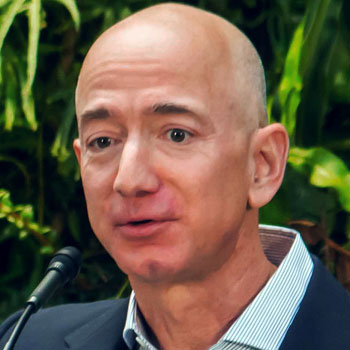
The mediaONmedia respondents weren’t quite sure what to make of Jeff Bezos. On one hand, Amazon is lumped in with the other FAANG companies as being a hugely disruptive and all-pervasive force. AWS is also a largely hidden, but massive (and highly profitable) player in the whole global digital infrastructure. Yet his personal ownership of the Washington Post – he paid $250m out of his own fortune back in 2013, allegedly without any due diligence – is seen as largely benign. It is a fascinating, and largely positive, case study of what to do with a loss-making legacy newspaper operation… “It looks like Bezos is keeping his hands off the editorial, whilst investing in tech and a clear marketing strategy.”… “From the outside – and from what Marty Baron (retired editor of the Washington Post) says – Bezos has really bought into the ‘Democracy dies in Darkness’ slogan.”… “It’s slightly worrying that he’s selling the Washington Post CMS software to other publishers – very Amazon – but this little ‘train set’ seems to show Bezos in a positive light.”
As an interesting aside, there are several “train set” moguls – wealthy individuals, particularly in the USA, who have made their money elsewhere, but who love the idea of owning a media brand – who are buying up legacy media companies. We are witnessing the rebirth of the old-fashioned “media mogul”, but with a new digital overlay.
Who are the other “Media Shapers”?
Three other groups of influential individuals are mentioned…
1. Front-end presenters & influencers
The public face of media, where the feeling is that these individuals are influencing the agenda and creating an image of what “the media” is all about in the public’s mind – for good and ill! Names mentioned include:
- Andrew Neill: “A really great investigative journalist with a huge career and about to launch a new TV news channel.”… “He has everything in front of him and great potential - for good or bad!”
- Oprah Winfrey: “She’s the most influential person across a lot of different categories, and one of them is media. This is more evident this year than most.”… “Did you watch the Meghan & Harry interview? Her skills may be singularly responsible for changing the British monarchy!”
- Piers Morgan: “He is an antagoniser and gets the column inches. I can't stand the man. But he speaks for many.”
- Tucker Carlson (the Fox News anchor): “An influence for ill, obviously. His impact on the people who seem to believe every single nonsensical thing he bleats out every night further divides the United States and endangers our democracy.”
- David Attenborough: “He has global reach and cuts through with his messaging. A real force for good.”
2. Political manipulators
This quote sums up the feeling of many… “The biggest shadow cast over the media currently is the manipulation and demonisation of the media by political regimes, entwined with the idea that we live in a post-truth world where shared objective standards are disappearing. The biggest players here are authoritarian leaders such as Xi Jinping, Vladimir Putin and Viktor Orbán. These people are not in the media business as such, but their influence and power over the media, and the way they make use of it, makes them a very real part of the media world.”
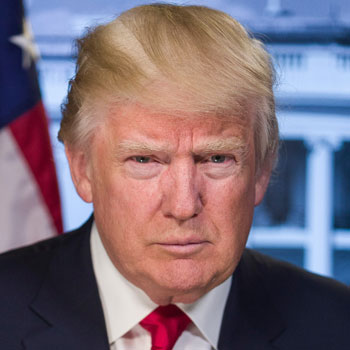
Donald Trump heads the list… “Trump heads a field of liars from Turkey to Russia to Hungary and Brazil, who all threaten democracy by using the techniques of dictators.” The persistent rumour that Trump wants to create his own TV news channel drew this comment… “If there’s one thing more dangerous than Trump as president, it’s Trump as a media owner – fuelling the vitriol, anger and prejudice that live on in American society. At least there is some accountability for an elected politician. There isn’t for a media owner.”
Also mentioned in despatches…
- Nigel Farage: “Over-favoured by the BBC. He convinced enough of a nation to believe they were being ripped off by the European Union. No matter what nonsense he came out with, the media always ran a story, which probably contributed to a lot of misinformation.”
- Boris Johnson: “If he's keeping a diary, watch out!”… “Someone whose relationship with objective truth is tenuous at best.”
3. Media Insiders
A handful of senior media executives are mentioned, who are clearly influencing the industry from the inside. Three notable examples – and all female, incidentally:
- Katherine Viner (Guardian editor-in-chief): “A woman with power”… “For the past several years, The Guardian has been setting the global agenda for the awareness of the severity of environmental issues, bringing in-depth environmental reporting to the regular news cycle. There is no more important ongoing story.”
- Zillah Byng-Thorne (Future CEO): “Taking a major publishing house into new territories with ambitions acquisitions. Is she showing us the future of media – or at least part of it?”
- Carolyn McCall (Chief Executive, ITV): “She’s back where she belongs in the media business. I worked with her in the Guardian days. We need her clear thinking back in the industry again. But does she have the power base at ITV to make a real difference? Do any of us for that matter?”
And what about the faceless people we don’t know?…
Here is slightly scary thought to round things off… “I think the most influential person in media is completely unknown. They are probably working in a high-powered position at one of the big social media platforms (Google or FB), deciding content policy and directing or writing algorithms / AI / machine learning tech behind the scenes. All that determines what's shared, censored, discoverable by each and every one of us. And who sees what we share? I also think that it's very likely there are people who are employed by the likes of Zuckerberg, Bezos, Cook et al, who have more power over content on their platforms than their bosses do.”
So, what does all this mean?
The diverse range of responses highlights just how many influences are at work in the media business at the moment and how many issues and questions remain unresolved…
- There is a general feeling from media insiders themselves, that despite the wild open spaces of the internet and the tsunami of “user generated content”, overall control of the media looks to be concentrating into the hands of fewer and fewer players. Many of these players, notably the politicians, know precisely what they are doing with their media tools; some, like Zuckerberg, simply do not seem to appreciate the far-reaching implications of what they are up to.
- Who owns a media outlet is of massive importance and needs more careful thought and handling by the powers-that-be. That does not simply mean restricting or excluding particular operators, but also allowing more traditional media companies to consolidate and build scale across platforms in order to compete with FAANG.
- Individual “media moguls” are coming in an increasing range of shapes and sizes, from the traditional Citizen Kanes (like Murdoch) through faceless corporations and on to the new generation of “train set moguls” (like Bezos). High profile individuals such as Murdoch may not be “accountable” in the way that many would like, but at least they are visible and open to public scrutiny and attack. Such is not the case with the political manipulators, in the same way. Better the media mogul you know than the devil you don’t?
- Individual front-end presenters are having a growing influence on the media agenda and on how the media industry itself is perceived by the general public.
- Content curation is shifting rapidly from people to machines and AI.
- Media insiders seem to have much less profile and influence than the individuals outside the core industry.
- And what is “the media” anyway. The term is becoming increasingly difficult to define in our mad, whirlpool world.
Two final thoughts
Firstly, what the poll demonstrates is that we on the inside of media are fascinated by the whole business as much as anyone else on the outside. It is fun, glitzy, hard graft, addictive, fast, but also very fragile. In addition, we are all emotionally invested in it and convinced of its importance in an open and free society.
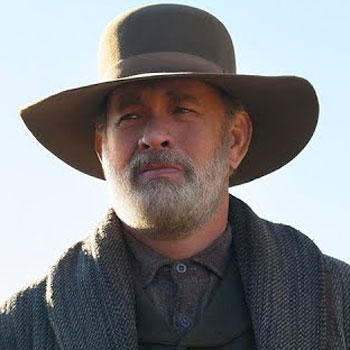
Secondly, few people in the poll shared my enthusiasm for Tom Hanks’ News of the World. It’s a slow burner which will eventually be recognised as a classic, believe me! Whatever its strengths and weaknesses, it is almost evangelical about the power and importance of information, education and a free and independent media business in a world of fake news and media manipulation.
The Hanks character is the ultimate perambulating podcast. And that leads on to where mediaONmedia goes next. So far, we’ve focussed on the watching and reading media. In the next phase, we’ll move on to the exploding world of the listening media – radio, streaming services and podcasts.
To all who have taken part in the mediaONmedia so far, many thanks. Please stay with us for the next instalment.

The mediaONmedia project is run by Wessenden Marketing and InPublishing. If you have any feedback, please email Jim Bilton.


